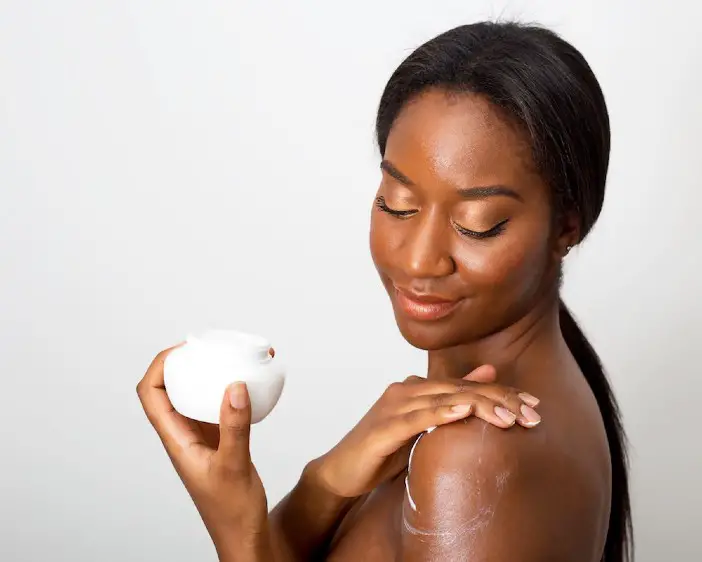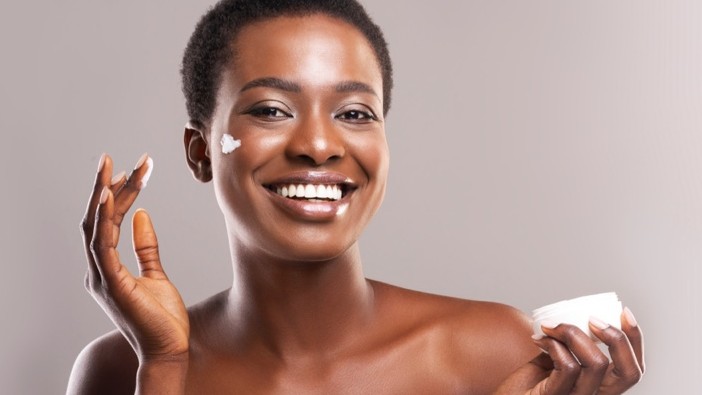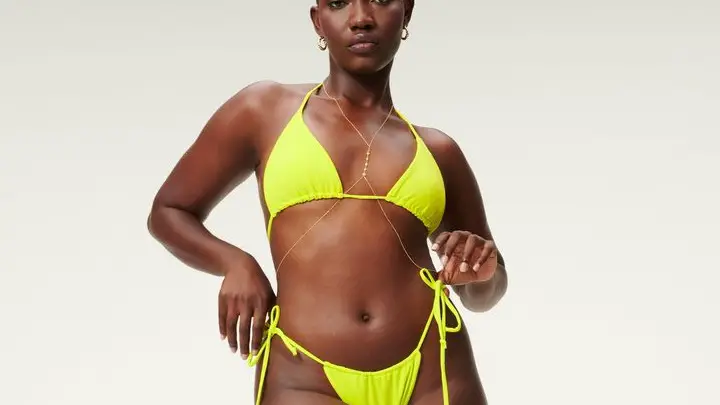How does sunscreen work? Have you ever asked yourself this question? I am sure you know what sunscreen is, and you probably already have it included in your skincare routine, but you may not know how it works to protect your skin from exposure.
Sunscreen works by obstructing and absorbing UV rays before it reaches to damage the skin. It does this through a combination of some physical and chemical elements. Zinc oxide and titanium dioxide are both physical elements used to reflect UV radiation away from the skin.
The chemical ingredient complements the physical elements’ reactions to UV rays before they penetrate deep into the skin. Sunscreen serves as a physical sunblock, and it comes in different forms. It can be spray, lotion gel, or even wax.
These sunscreen products work either by absorbing the sunlight or reflecting it. This means that they help to physically protect the skin against sun damage or avert the sun away from the skin.
How Does Sunscreen Work for Skin Protection

There are 2 variations of UV rays: UVA and UVB. UVA penetrates deep into the skin resulting in skin aging and wrinkling, while UVB radiation is the major factor of sunburn. Exposure to both of these variations can result in skin cancer.
Fortunately, Sunscreen comes in here to help protect the skin from any form of UV rays produced by the sun that can cause skin damage. Sunscreen helps us not to worry about painful sunburns as it provides us protection against UV light.
Inorganic chemicals such as titanium dioxide or zinc oxide are mineral sun protectors for the skin. They provide physical protection to the skin by blocking the sun rays from penetrating the skin.
However, Organic carbon elements such as avobenzone or oxybenzone help to absorb the UV radiations before your skin does. This is achieved through their chemical bonds with the sun’s radiations and as it absorbs the radiation, there is a breakdown of chemical compounds in the sunscreen.
How to Choose the Right Sunscreen
Now that you know how much damage the ultraviolet radiation of the sun can cause to the skin, it is important to put certain things into consideration when choosing a sunscreen product.
SEE: Best Sunscreen for Brown Skin to Keep You Protected All the Time
Choose a Sunscreen With Broad-Spectrum Protection
The first thing to consider when picking a sunscreen product is a sunscreen that is labeled “broad spectrum”. Sunscreens with the broad-spectrum protection label help to protect the skin against the two variations of Ultraviolet radiation; which are UVA and UVB rays.
Even though all sunscreens protect the skin against UVB rays, which is the main cause of skin cancer. Only broad-spectrum protection can protect the skin from UVA rays; which also contributes to the development of skin cancer. Products with this label have to undergo and pass a certain test.
Inorganic chemicals such as zinc oxide are capable of protecting the skin from both UBA and UVB rays. In light of this, always look out for active ingredients such as; titanium dioxide, zinc oxide, avobenzone, and Mexoryl SX.
Consider the Sun Protection Factor (SPF)
Spf is often misconceived as the strength of protection, however, it is the measure of the level of protection a sunscreen offers against UVB rays. This means that SPF suggests how long it takes UVB rays to penetrate and redeem the skin with sunscreen as compared to without sunscreen.
Look out for a sunscreen that protects the skin from the two variations of ultraviolet radiation with an SPF of 30 and above. The higher you go, the longer it takes UVB rays to burn and redeem your skin. An SPF of 30 should be able to filter out 97% of UVB rays while an SPF 100 should filter out about 99%.
Keep in mind that no sunscreen can protect you completely from the sub, therefore, always reapply your sunscreen throughout the day. Apply an hour before leaving your home and every two hours you spend outdoors or exposed to the sun.
Ensure That It Is Water-Resistant
There is a difference between water-resistant and waterproof, just because a sunscreen product claims to be water-resistant doesn’t mean it is waterproof. No sunscreens are waterproof. The most resistance to water a sunscreen can provide is about 40 to 80 minutes of water or sweat.
However, pick a water-resistant sunscreen to keep your skin protected even as you swim or sweat.
Choose What Works for Your Skin Type
Here is another factor that greatly influences your choice of sunscreen products. There are ingredients to avoid or look for in sunscreen to save your skin from harsh reactions from these products.
Don’t worry, there is the perfect sunscreen for everyone. Follow the tip below to guide your selection.
For oily skin: due to being acne-prone, ensure that your choice of sunscreen has a label of being non-comedogenic. Comedogenic products tend to block the skin’s pores and this results in a blackhead.
For dry skin: look out for moisturizers that contain sunscreen or you can go for a sunscreen that contains hydrating ingredients such as ceramides and hyaluronic acid.
For sensitive skin: It is best to choose a physical sunscreen with ingredients such as zinc oxide and titanium dioxide; to help protect the skin. These ingredients stay on the skin, building a protective barrier for your skin against the sun without burning or stinging your skin. You can also opt for mineral sunscreen.
SEE: Having It All With a Minimal Skincare Routine
Benefits of Sunscreen

Aside from being a protector for the skin against sunburn and damage, daily usage of sunscreen has more advantages attached to it. Below are a few of the benefits of using sunscreen.
- Sunscreen helps to reduce the signs of aging. Being exposed to the sun without protection can cause damage to the collagen in your skin; which results in loss of your skin’s elasticity and the appearance of wrinkles.
- It also helps to limit the appearance of age spots and sunspots on the body.
- The use of sunscreen helps to protect the skin against sunburn.
- It reduces the risk of skin cancer
SEE: Is Coconut Oil a Sunscreen? Here’s All the Information You Need
Frequently Asked Questions
How do I apply sunscreen to my skin?
Follow the step-by-step guide below to apply sunscreen to your body.
- Shake the container well before using it. This is to mix ingredients that might have clustered up in the container.
- Apply enough sunscreen on your body. Use about an ounce or handful of sunscreen to rub your body.
- Apply it on all parts of your skin that will be exposed to the sun when you are outdoors, such as the ears, back, shoulders, and the back of the knees and legs.
- Apply widely and completely.
- Be careful and avoid applying sunscreen around the eyes.
Is sunscreen safe to use for everyone?
Yes. Both the physical and chemical sunscreen have been tested as age and effective for use.
However, chemical sunscreens are likely to cause skin irritation and physical sunscreens are less likely to cause any irritation.
When should I apply sunscreen?
Apply sunscreen on your body every day. For the best achievable result, it is reasonable to apply sunscreen 30 minutes before leaving your home to venture outdoors into the sun. Leaving your home unprotected can lead to skin damage.
Keep reapplying sunscreen every two hours of exposure to the sun and also immediately after swimming or excessive sweating. Apply sunscreen when you are going out, whether it’s cloudy or sunny because 80 percent of the sun’s UV radiation reaches the earth no matter what.
What type of sunscreen should I use?
Ensure that the sunscreen you settle for is a sunscreen labeled broad-spectrum; that protects against both UVA and UVB sun variation. Also, make sure it contains an SPF of 30 or higher and make sure it is water-resistant.
Sunscreens are available in lotions, creams, gels, sprays, and so on. The kind of sunscreen that you decide to go for is a matter of your personal choice.
- Sunscreens that come in the form of creams are best for dry skin and the face.
- Gels are a kind of sunscreen that works well for hairy areas, such as the scalp or male chest.
SEE: How to Reduce Redness on Face: 15 Home Remedies
Conclusion
Sunscreen helps us not to worry about painful sunburns as it provides us protection against UV light. Sunscreen serves as a physical sunblock, and it comes in different forms. It can be spray, lotion gel, or even wax.
However, it is important to put certain things into consideration when choosing a sunscreen product. You have to consider your skin type, always pick a sunscreen that works best for your skin. Also, ensure that you go for an SPF of 30 or higher.
Use your sunscreen often throughout the day, especially if you work outdoors. Additionally, protect your skin from sunburn by wearing hats and protective clothing.
Thanks for reading.
Liked this article? Visit Africana fashion for more skincare and wellness tips.







